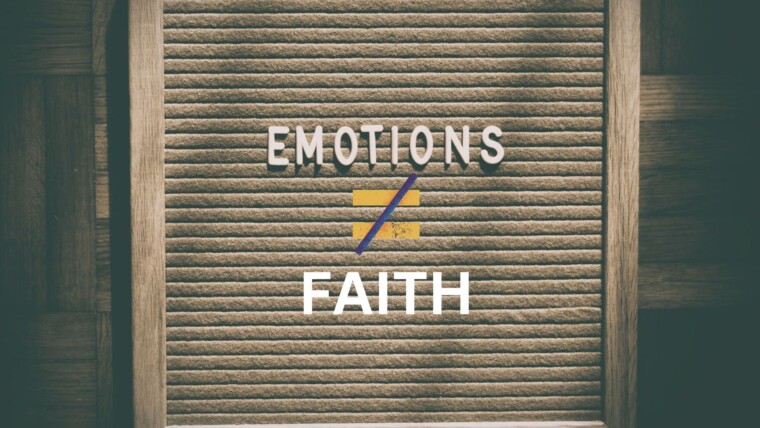In our previous article regarding the matter of “Discipleship or Debate part 1” (Read here), we have been analyzing the passage found in Proverbs 27:17 that says, “As iron sharpens iron, so a man sharpens the countenance of his friend.” This verse has been used time and again to defend the practice of believers engaging in heated debate in order to knock the rough edges off of each other.
Now let us take the examination a step farther. Since we know who is sharpened, let us ask next:
What is Sharpened? – His Countenance
We sharpen the countenance of a friend. What does this mean, to sharpen his “countenance?” The Hebrew word here means literally, “face” and it is used throughout Scripture to refer to a person’s presence or bearing. This includes his ability to think, discern, respond, and act.
So, this means that a man who is sharpening the countenance of his friend is working within a relationship based on true biblical love to refine and polish who he is, how he thinks, what he says, and how he behaves. Sharpening a man’s countenance is to work to refine who he is in every part of his being. It is indeed nothing short of teaching a friend how to avoid being conformed to the world while instead teaching him to be transformed by renewing his mind in the Scriptures (Rom 12:1-2).
How do we Sharpen? – like iron on iron
It is often believed that this sharpening is heated confrontation, even to the point that friends or fellow believers will offend one another in the process. But if we remember that this is all taking place within the context of a relationship based on true biblical love, then will this sharpening ever be offensive? Will it draw out the depravity in all of us? Will it hurt our pride or cause us to rear up in defensive anger toward the one sharpening us?
To understand and answer these questions we must ask, “Why is this process one of iron on iron?”
In order to make a cutting tool or a weapon effective, it has to be sharp. At the time this verse was written workers, weapon makers, and soldiers would use a piece of iron to sharpen another piece of iron. The goal of the process was to take off the blunt, rounded edge along with any burrs, bumps, or irregularities in the metal. The end result, after pressure and friction, was that the edge was not round or jagged, but smooth and sharp. The point was to make a point!
I think that often the focus is set on friction and pressure instead of on the goal. The goal is not to pressure one to become sharp, nor is it to create friction, confusion, or agitation. The goal is to remove those things that keep us dull and unusable.
Think of it this way, this word picture (iron sharpening iron) can just as easily be restated in another form. In fact, the writer of Hebrews does just that. Let’s look at Hebrews 12:1-2.
Hebrews 12
1 Therefore we also, since we are surrounded by so great a cloud of witnesses, let us lay aside every weight, and the sin which so easily ensnares us, and let us run with endurance the race that is set before us, 2 looking unto Jesus, the author and finisher of our faith, who for the joy that was set before Him endured the cross, despising the shame, and has sat down at the right hand of the throne of God.
There it is. In order to run a good race, to compete with any skill, the athlete must “lay aside every weight” that would slow him down. Can you imagine running a race, be it a sprint or a marathon, with a heavy weight chained around your neck? It would definitely slow you down, hinder your progress, and probably would even injure you if you continued to run without taking it off.
So, if we are to run the race skillfully, to compete, to finish the course, then we must first remove every weight, anything that might ensnare us, slow us down, and hinder our progress. And the Scriptures are quite clear – the weight that slows us down is sin.
The task of laying aside the weight, of being sharpened so that the rough irregular blemishes are honed off, is the task of removing sin. It is repentance and confession. If we want our countenance to be sharpened, our presence and being to be keen and useful, then we must get sin out of the way.
The Word of God
This can be applied as we see that a man sharpens the countenance of his friend by aiding him in the battle against the world, the flesh, and the devil. It is using the Word of God as it was meant to be used.
The Word is the tool we use to sharpen one another with, set in a relationship of love and concern for spiritual growth and effective service to our Master. It is the Word that is “inspired” and useful for “doctrine, reproof, correction, and instruction in righteousness, that the man of God may be thoroughly equipped for every good work.” (2 Tim 3:16-17).
Doctrine – the Word is used to teach us what to believe.
Reproof – the Word is used to confront sin and error in our life and our belief system.
Correction – the Word is used to give us steps of correction, a remedy for what has been reproved.
Instruction in Righteousness – the Word is used to show us how to be right with God and how to grow in our fellowship with Him. We are taught, instructed, in how to be right with Him.
There is no anger here. No animosity. No pride. No condescension. No irritation. No impatience. No harshness. No rudeness. No temper, wrath, or ill esteem. Because the Word, when used rightly to disciple one another, is used in the context of a relationship built on true biblical love. There we are again, back to love.
The Plank and Speck
Now some might say that removing the speck from a brother’s eye can be hard work. There are some, especially on internet forums, that are professional speck removers. In their opinion, they are right and we are wrong. They will expose the error of our ways, tell us how ignorant and naive we are to have fallen for such a false piece of doctrine, they will reprove us for not being as wise as they, they will correct us with harsh impatient unkind words, and then they will insist that to be instructed in righteousness is nothing less than embracing their point of view without question.
Here we have a brother, though not necessarily a friend, running straight for us, tweezers in hand to pluck the speck out of our eye. But as they get near suddenly, we are bludgeoned by the telephone pole sticking out of their head! Can you imagine this zealot trying to remove a speck of dust from someone’s eye all the while a utility pole complete with garage sale flyers attached is protruding from their eye socket?
But these pole bearers and speck removers forget what the Bible says. While the Word of God never condemns removing a speck from a brother’s eye, it is absolute in giving us this instruction: first remove the PLANK from your own eye! In other words, be ready to deal with your sin and your pride and your false beliefs first, then seek to assist others in the pursuit of right living and right belief.
It is also interesting to me that the difference between a speck and a plank is simply perspective. If a speck is in your own eye, it appears as a plank, obscuring much of your field of vision. But if it is another’s eye, at a distance, it is but a speck.
Sharpened Iron
So, to conclude this portion of our article, the iron that is sharp and the runner that is fast, the eye that can see without obstruction, is the iron, the runner, the eye that is consistently and continually being rid of sin. It is an application of Romans 6. It is aiding one another in the pursuit of holiness. It is becoming more and more like Christ, by the power of the Spirit through the application of the Word of God to our daily lives.



